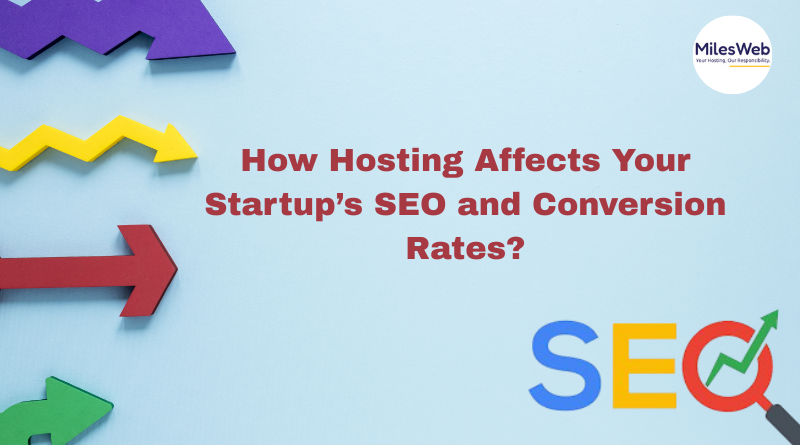How Hosting Affects Your Startup’s SEO and Conversion Rates?
Most startup founders obsess over design, content, or marketing campaigns — yet overlook one thing that silently controls both their search rankings and conversion numbers: hosting with cPanel. It’s not just the server you deploy your website on. It’s the foundation that decides whether Google actually ranks you and whether visitors stay long enough to become paying customers. Think of it as the plumbing and wiring of a building — you don’t show it off in your pitch deck, but if it fails, everyone notices.
Here’s the hard truth: you can have the best copywriter, the slickest design, and blow your entire ad budget in days — but if your web host doesnt move website free, or stumbles under a little pressure, all of that effort collapses. It’s the equivalent of opening a flagship store with locked doors. People want in, but they can’t even get past the entrance.
We’ve seen startups run six-month campaigns, land media coverage, and get the traffic surge they dreamed of — only for their website to suffer during the most important hour. Their “big break” turned into a big facepalm.
Hosting’s Hidden Role in SEO
Google doesn’t care what your hosting plan is called, but it does care about speed, uptime, and security — three things your host directly controls.
- Speed: If your website struggles to load in the search engine, more visitors will leave before seeing your content. Google’s algorithm treats slow-loading websites as frustrating for users and lowers their rankings.
- Uptime: If your website goes down often, search engines see that as a sign it can’t be trusted, and your place in search results drops.
- Security: Websites without SSL or with malware problems get flagged and pushed down because Google wants to protect its users.
Even seemingly small factors like server location can influence rankings. A startup targeting customers in India but hosting its website on a bargain server in the US can lose precious milliseconds on every request. That delay might feel tiny, but Google tracks it—and your competitors who load faster will outrank you.
Conversion Rates Start at the Server
Most startups assume that boosting conversions is all about changing button colors or tweaking titles. But the part they forget? If your page takes four seconds to appear, half your visitors are gone. They’re not clicking “Buy Now”—they’re clicking the back button.
A fast, reliable host ensures potential customers can actually experience your offer without hiccups. And when the experience is smooth—pages load instantly, checkout doesn’t stall—your conversion rates rise without touching a single design element.
Get that right, and you lift conversions without touching a single headline or layout.
The Uptime Trap
Hosting providers often boast of “99.9% uptime.” That sounds impressive until you do the math — that’s over 8 hours of downtime a year.
Now imagine you’re running a 48-hour launch campaign, and your website goes down for just two of those hours. That’s potentially hundreds (or thousands) of lost sign-ups or purchases. Downtime doesn’t just cost sales in the moment — it dents your SEO. Google tracks availability, and frequent outages push your website down in rankings.
Security: More Than Just Avoiding Hacks
Security isn’t just about keeping hackers out — it directly impacts SEO and conversions. One “Not Secure” warning in a browser and you’ve lost the sale before it even began. In a world where data breaches make headlines weekly, customers are more cautious than ever.
Google’s already made SSL certificates a ranking factor. But strong hosting goes further with:
- Malware scanning runs daily.
- Automated backups that save you from disasters.
- Firewalls that blocks threats before it can touch your website.
When customers feel safe, they’re more likely to complete purchases, sign up, and share their information.
Scaling Without Choking
Here’s where many startups get burned: they plan for “steady growth” but not for spikes.
A PR mention, a viral LinkedIn post, or a single influencer tweet can multiply your traffic overnight. Cheap, resource-limited hosting crumbles under that load — Slow load times and outages during peak interest are a double hit.
- Google notices when your website struggles and pushes your rankings lower.
- Visitors bounce because they can’t get the page to load.
Scalable hosting — with flexible CPU, RAM, and bandwidth allocation — lets you handle spikes without paying for maximum capacity all year.
Real-World Startup Hosting Checklist
If you want hosting that actually supports your growth, not sabotages it, here’s what to check before you sign anything:
- Pick speed-focused providers with proven uptime records.
- Choose a datacenter location nearer to your potential customers.
- Security basics like SSL, daily backups, and monitoring should be pre-integrated in the package.
- You should be able to upgrade your resources instantly.
- When you need help, real experts should be available around the clock—not automated replies.
- Plan for traffic spikes — don’t “hope” your server survives.
Treat hosting like you would a key hire — test them, and make sure they can handle the pressure before you commit.
Strategic Outlook
Your hosting isn’t just a technical checkbox — it’s a growth lever. The right setup quietly boosts rankings and conversions every single day. The wrong one? It’ll quietly sabotage them while you wonder why your “perfect” marketing plan isn’t working.
That’s why teaming up with a host like MilesWeb matters. They don’t just offer space for your website; they back you with fast servers, solid security, and real support when things get tricky.
When you look at it that way, investing in solid hosting providers like MilesWeb becomes one of the most cost-effective SEO and conversion strategies your startup will ever make. Get it right early, and it pays for itself many times over.


Leave a Reply